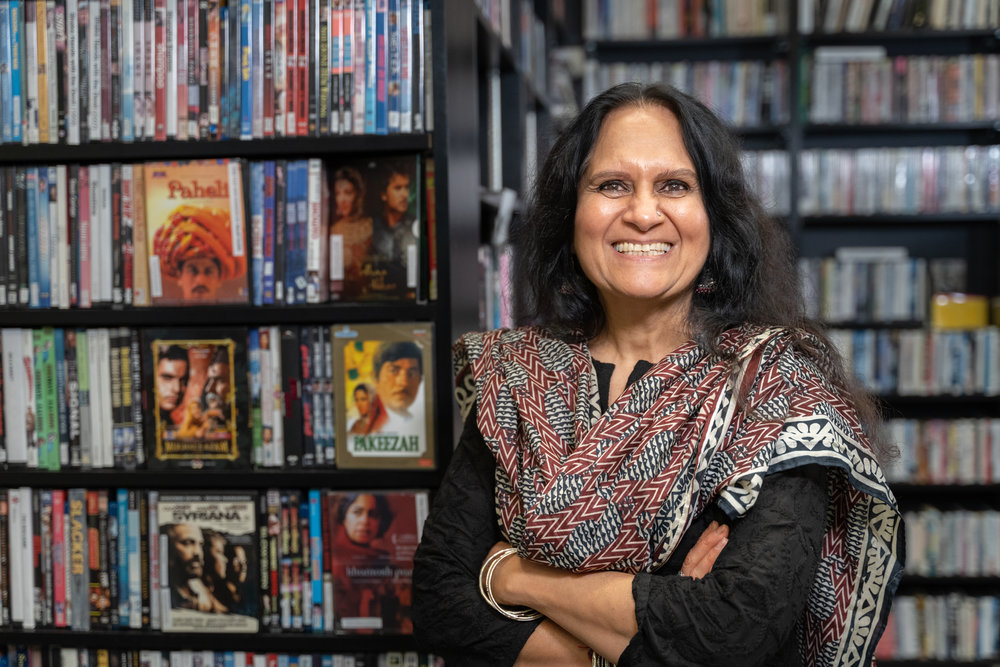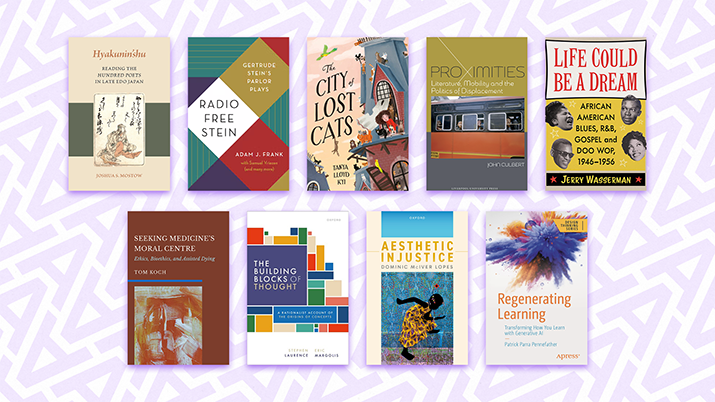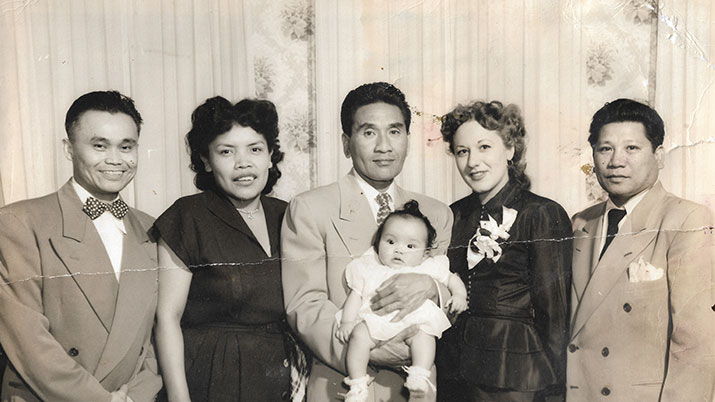

Sunera Thobani, a professor in the Department of Asian Studies, is conducting a three-year SSHRC-funded project on cinematic representations of Islam and Muslims. Photo: Oliver Mann
Shortly after 9/11, as the United States prepared to launch a war in Afghanistan, President Bush’s staff arranged a screening of the film Kandahar to help the president learn more about “Afghan culture.”
For Sunera Thobani, an Asian Studies professor researching representations of Islam and Muslims in Cinema, this is a vivid example of how media portrayals of “the enemy” can impact state policies as well as public perceptions.
In a new three-year SSHRC-funded study, Thobani will try to understand how cinematic representations of Muslims have shifted over the almost two decades of the war in Afghanistan – a conflict that has resulted in hundreds of thousands of lives lost. How have Hollywood’s representations of Muslims fuelled Islamophobia — helping to justify everything from wars in the Middle East to the Muslim Ban? Thobani will also be looking at films from Canada, the United Kingdom, and India, to consider how representations of Islam and Muslims differ across national context.
“I hope my project brings new insights into how a media that is widely treated as ‘entertainment’ intersects with politics to shape popular attitudes towards Islam and Muslims.”
We spoke to her about her research questions, and the impact she hopes to have.
What are you trying to uncover in this research project?
I plan to study the key representational strategies that depict Islam and Muslims in four film industries: the US, the UK, Canada, and India. Given these cinemas produce the majority of the films viewed around the world, I want to understand how their depictions speak to their national contexts as well as global concerns. For instance, how do representations of Muslims in Canadian films speak to Canadian national narratives about multiculturalism? How do Bollywood films reflect national politics in India? Unpacking the images, plots, characters, and narratives that are popular, as well as the conditions in which these cross national borders into the global, is an urgent task.
The global war made Islam the foremost concern in global politics, and the ideological framing of Muslims as security threats to the nation-states whose cinemas I study continues to influence state policies as well as public attitudes. The impact of films on shaping public understanding of these issues cannot be overstated; films give a visceral and immediate form and meaning to ideas about nation, community, and threat. To understand the contemporary workings of power, one cannot avoid the role of this powerful media.
What drew you to this area of research and why is this topic important to you?
I was initially drawn to this topic by my work in the women’s movement. I was one of the few voices publicly speaking out against the war on terror, urging women’s organizations to oppose Canada’s participation in the invasion and occupation of Afghanistan. My previous research and life experience led me to believe that the war could only have a devastating impact on women in the conflict zones. As public support for the war grew in Canada, especially among feminist and other progressive communities, I began to study how the war was reshaping ideas not only about war and imperialism, but also about gender, feminism, sexuality, western culture. The devastation wreaked by the war is by no means over, and studying how the ‘enemy’ is constructed in the cultural as well as political field is crucial to finding a way out of this catastrophic violence.
What impact do you hope that your work has?
I hope my project brings new insights into how a media that is widely treated as ‘entertainment’ intersects with politics to shape popular attitudes towards Islam and Muslims. My plan is to foster greater public awareness, media literacy, and critical thinking in engagement with popular films, and to promote more self-reflexive and ethical practice among media producers and policy makers. This means my research findings will be disseminated in academic as well as popular publications, lectures, workshops and related public activities. Working with young scholars and students, and with community and women’s organizations, human rights advocates, and anti-war activists is also very important to me.
Sunera Thobani teaches several courses related to this topic:
- ASIA 433: The Cinematic Lives of Islam and Muslims in South Asia
- ASIA 333: Contemporary South Asian Gender and Sexuality Studies
- ASIA 389: Life Writings of South Asian Diasporic Women
- ASIA 399: Films of the South Asian Diaspora
This Q&A is part of a series exploring SSHRC-funded research in the Faculty of Arts. Related:


